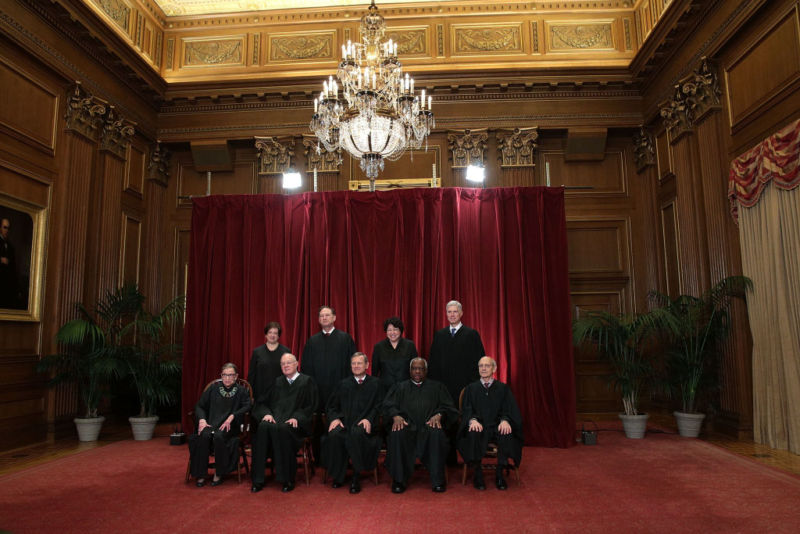
The Supreme Court is setting aside a request to live stream its oral arguments. The attorney for Chief Justice John Roberts Jr. told members of Congress that live streaming even the audio portion of its oral arguments might impact the outcome.
"The Chief Justice appreciated and shares your ultimate goal of increasing public transparency and improving public understanding of the Supreme Court," Roberts' attorney, Jeffrey P. Minear, wrote (PDF) the four members of Congress seeking (PDF) to have the court's gerrymandering case live streamed in audio. "I am sure you are, however, familiar with the Justices' concerns surrounding the live broadcast or streaming of oral arguments, which could adversely affect the character and quality of the dialogue between the attorneys and Justices. Consequently, the Court is unable to accommodate your request."
For years, members of Congress and the public have been trying to get the high court to televise or to live stream the audio of their oral arguments, in a bid to make the court more transparent. The response has always been an affirmative "NO" out of fear that it could affect the proceedings. The court's oral arguments are open to the public, however, and the audio version of an oral argument is usually made publicly available on the Friday of the week that the case was argued. The court's opinions are also posted to its website when the court releases them.
In other ways, however, public access to the court has been stuck in the Dark Ages—such as when it comes to obtaining briefs submitted by parties to the court. The court does not make them available online. But it plans to do so for free beginning next month. The lower federal courts started making their records available online nearly two decades ago using a paid system called PACER.
Meanwhile, the letter from the chief justice's attorney to Reps. Gerald Connolly, (D-Va), Mike Quigley, (D-Ill.), Ted Poe, (R-Texas), and Jerrold Nadler, (D-NY) said that the court would look for other ways "in which to enhance the public's understanding of its operations, while preserving the integrity of its proceedings."
Connolly, Quigley, Poe, and Nadler are among nearly a dozen lawmakers who have proposed the Cameras in the Courtroom Act requiring television coverage of all open Supreme Court sessions unless a court majority thinks publicly broadcasting a case could violate the rights of one of the parties in the case. However, the bill remains stalled in committee.
Minear's letter was made public Wednesday, a day after one of the biggest political gerrymandering cases was argued before the justices.
reader comments
127